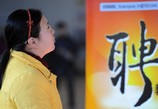
"But in second- and third-tier cities it could be a different story, especially those already with a large amount of housing stock."
On Wednesday, Premier Wen Jiabao vowed to keep property price controls in place — such as curbs on the purchase of residential housing for investment purposes, and by expanding the scope of a trial property tax — indicating a determination by the government to control prices.
Further detailed measures, industry experts said, may be needed depending on how the market develops.
Media reports suggested that down payments for second-home purchasers were likely to be increased to 70 percent from 60 percent, and the mortgage rate could be hiked to 1.3 times the benchmark interest rate instead of the current 1.1 times.
"We think some targeted measures could be implemented as early as April 2013 for a few large cities if sales and prices continue to rise rapidly," added Wang Tao, an economist with UBS, a view shared by Budden from EC Harris.
"Because of the upcoming two sessions of the top legislature and advisory body in March, the market is still cautious as investors are expecting possible repressive measures to be introduced," he said.
"Historically, we have seen price drops after these meetings, when new regulations or policies have been introduced."
New controls and regulations put in place by the government in 2012 initially led to property price falls, quickly followed by a swift recovery.
"This suggests that consumers can adapt to new policies and integrate them into their investment strategies," added Budden.
"Home ownership continues to be the most understood and tangible form of investment for the Chinese middle class."
Yao Wei, a China economist with Societe Generale SA, said stubborn housing inflation risks and sooner-than-anticipated monetary policy tightening were factors of more serious concern to the economy, especially the domestic equity market.

















 Provocative propaganda on environmental protection leaded by Chen Guangbiao
Provocative propaganda on environmental protection leaded by Chen Guangbiao


![]()
